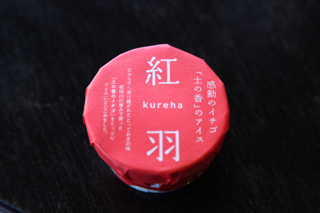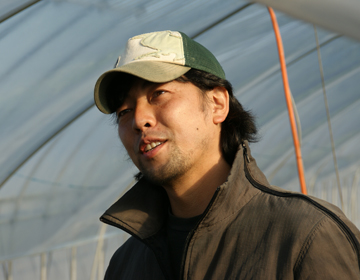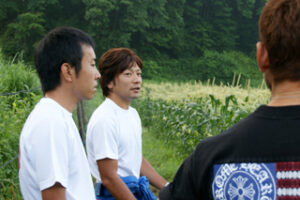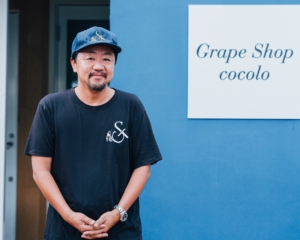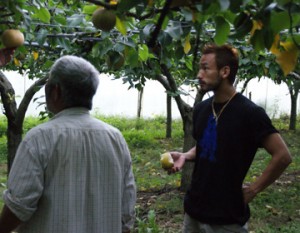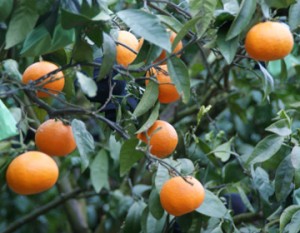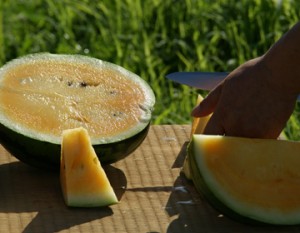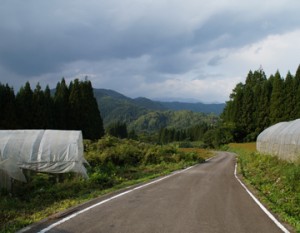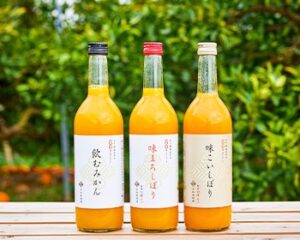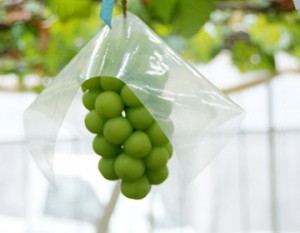How to tell good strawberries
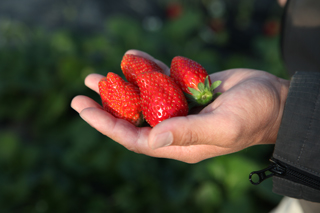
This is the farm that produces the ”Tonoka” that was highly praised by the pâtissier Toshihiko Yoroizuka. Because of the demand for cakes at Christmas, it is not rare to see strawberries in December. But Takehiro Yagioka told us that for eating the fruit itself, he wouldn’t recommend those that are shipped in December. Their roots are not fully grown, and the plant itself is not mature. There is no depth in the taste of the fruit. ”Then how do you tell good strawberries?” asked Nakata. There were two points. Those with calyxes that are bent upwards and backwards. That’s a sign that it’s ripe. Another sign is fruit with an irregular shape. These have a slower growth speed, giving ample time for the fruit to develop its full taste.
Particularity about the soil
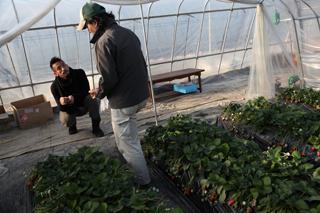
Takehiko Yagioka whom we interviewed, experienced office work in Tokyo for 9 years before he took up the family business of strawberry farming. When he came back to his hometown to grow strawberries, a local friend told him that the aroma of soil was in him. ”The expression ”aroma of soil” really appealed to me, and so I decided to name these strawberries ”tonoka” (aroma of soil).” One key to Yagioka’s strawberry farming is being particular about soil.
His preparation of soil involves mixing organic matters to the soil in the summer, soaking in mineral rich groundwater, then covering the field with a plastic sheet to kill off any germs with the heat, and preparing for planting in autumn. The strawberry plants will then soak up all the nutrients, which is reflected in the taste of the fruits.
Believing in the taste of strawberries and going to processed food
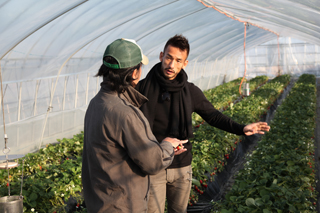
Yagioka had been helping his parents work on raising strawberries and had a certain degree of understanding about his work. However, when he actually started the business, his ideas about farming changed dramatically. It wasn’t just about raising crop, but product development, and building sales channels were also important elements of farming. He realized how rewarding this job was.
”All strawberries are sellable. The fruit that can’t be sold as is, i.e. ones that are deformed or too ripe, they can be sold as processed products. I don’t want to have what I made go to waste.” So he developed products like dried strawberries and strawberry ice cream. He sold the ones that are not good looking but taste good to cake makers etc. who would slice them and use them between cake layers. As a result, almost all of his strawberries could be sold, with none going to waste. He believes in the taste of his strawberries, and even cares about the end products.
